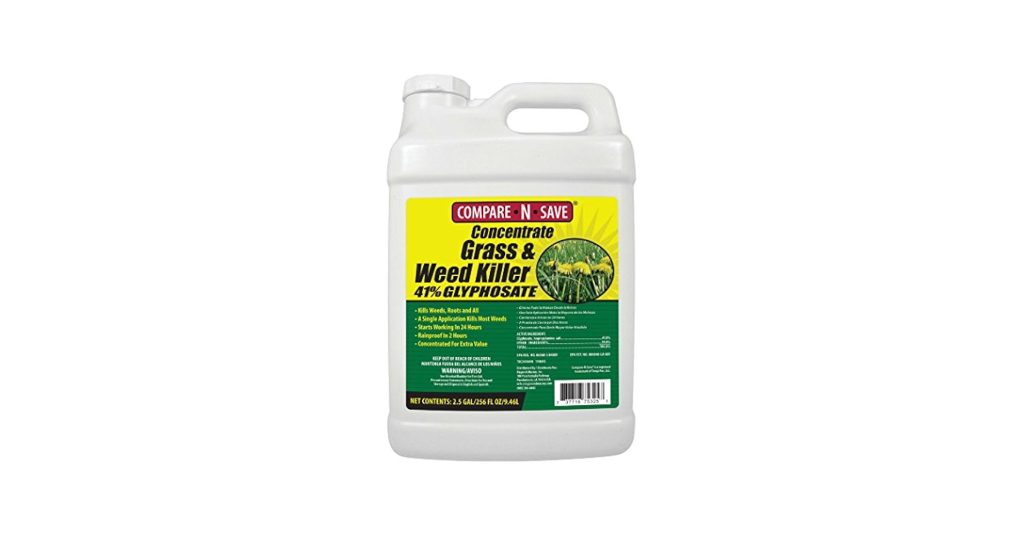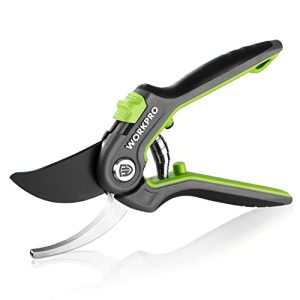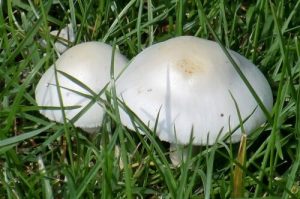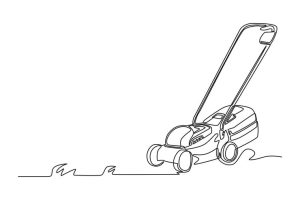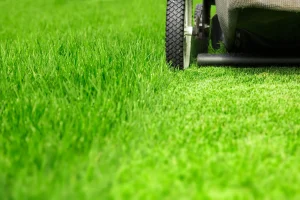Imagine stepping into your garden, only to find it overrun with relentless weeds, choking the life out of your beloved plants. It’s frustrating, isn’t it?
You want a solution that’s quick, effective, and doesn’t require you to spend hours on your hands and knees. You need a weed killer that gets the job done – one that eliminates every unwanted plant from your garden with ruthless efficiency.
But with so many options out there, how do you choose the right one? We’ll uncover the secret weapon in your fight against weeds, revealing the ultimate weed killer that wipes out everything unwanted, giving your garden the fresh start it deserves. Stay with us, and discover how you can reclaim your garden paradise once and for all.

Credit: www.amazon.com
Broad-spectrum Herbicides
Broad-spectrum herbicides are powerful solutions for weed control. They target a wide variety of plants, not just specific types. This makes them ideal for areas with diverse weed problems. They are often used in agriculture, landscaping, and gardening. These herbicides can clear large areas efficiently. They provide a clean slate for planting or landscaping.
Chemical Composition
Broad-spectrum herbicides contain potent chemicals. Glyphosate is a common ingredient. It disrupts plant growth by targeting essential enzymes. Another ingredient is diquat. It causes rapid wilting and death in plants. Some formulations include 2,4-D, which mimics plant hormones. These chemicals work together to ensure thorough weed elimination.
Effectiveness
These herbicides are highly effective against various weeds. They work on both annual and perennial plants. Results are often visible within days. They penetrate deep into the plant system. This ensures that the roots are also affected. Broad-spectrum herbicides are ideal for heavily infested areas. They help maintain clear landscapes for longer periods.
Natural Alternatives
Exploring natural alternatives, vinegar and salt mix acts as an effective weed killer. It targets unwanted plants without harsh chemicals, making gardens safer for children and pets.
When it comes to tackling pesky weeds, not everyone is comfortable using chemical-laden products that might harm the environment or their garden’s delicate ecosystem. Thankfully, nature offers powerful alternatives that can address your weed problem without causing collateral damage. These natural solutions are not only effective but also quite simple to prepare using items you likely already have in your home. Let’s dive into some practical options you can try today.Vinegar-based Solutions
Vinegar is a household staple that packs a punch when it comes to weed control. Its high acidity can effectively kill many types of weeds without harming the soil. Mixing vinegar with a bit of dish soap can make it stick to weed leaves better, enhancing its effectiveness. You might be surprised at how quickly this mixture can work, often showing results in just a few hours. Why not give it a shot next time you spot unwanted greenery sprouting in your garden?Salt And Soap Mixes
Salt is another common ingredient that can help you wage war against weeds. When combined with soap, it can create a solution that dries out and kills weeds upon contact. Mixing salt with water and soap creates a spray that’s easy to apply directly to the offending plants. Just be cautious with salt; it can linger in the soil and affect future plant growth if overused. Is this method the right balance between effective and gentle for your gardening needs? Trying these natural alternatives could make you feel like a garden scientist experimenting with solutions that align with your eco-friendly values.Application Methods
When you’re dealing with stubborn weeds that seem to survive everything, understanding the application methods of weed killers can make a world of difference. With the right techniques, you can maximize the effectiveness of your weed killer, ensuring that every unwanted plant is eliminated without harming your garden. Let’s dive into the most efficient ways to apply these powerful solutions.
Spraying Techniques
Spraying is a popular method for covering large areas quickly. It’s essential to use a spray bottle with a fine nozzle for even distribution. Ensure you’re wearing protective gear to avoid any skin contact with the chemicals.
- Adjust the nozzle to a mist setting for larger areas to cover more ground efficiently.
- Hold the sprayer at a consistent height to ensure even coverage.
- Spray during calm weather to prevent the wind from carrying the solution to unintended areas.
Have you ever wondered why some weeds keep coming back despite your efforts? It might be due to uneven application. By mastering spraying techniques, you can target every leaf and stem, ensuring complete eradication.
Spot Treatment
Spot treatment is perfect for isolated patches where weeds are concentrated. This method allows you to focus your efforts where they’re needed most, conserving resources and minimizing impact on surrounding plants.
- Use a small brush or a sponge for precise application on individual weeds.
- Mix the weed killer in a separate container for easy access and controlled use.
- Check the area after a few days to ensure the weeds are dying and apply more if necessary.
Have you tried spot treatment before? It’s remarkably effective for those annoying weeds that pop up in the middle of your lawn or garden. This method gives you the power to tackle them directly and decisively.
By employing these application methods, you can ensure your weed killer is as effective as possible. Which technique do you think would work best in your garden?
Safety Precautions
Using a weed killer that eliminates everything in its path is a powerful solution for unwanted vegetation. However, it’s essential to prioritize safety. Without the right precautions, these chemicals can pose risks to you, your loved ones, and the environment. Let’s dive into some critical safety measures to ensure you’re using these products responsibly.
Protective Gear
Before you even open the bottle, consider what protective gear you might need. At the very least, gloves are crucial. They protect your skin from direct contact with chemicals that can cause irritation or burns.
A good practice is to wear long sleeves and pants. This extra layer of clothing shields more of your body from potential splashes. Don’t forget about your eyes—goggles can prevent serious injury from unexpected sprays.
Ever had a mishap while working in the garden? Imagine if that mishap involved harsh chemicals. It’s always better to be over-prepared than under-protected.
Environmental Impact
Using a weed killer that eliminates everything can have significant environmental consequences. While it might solve your weed problem, it could also harm beneficial insects and plants. This might lead to a less vibrant garden in the long run.
Consider the runoff. Chemicals from weed killers can seep into the soil and waterways, impacting local wildlife. This could affect not only your yard but your entire neighborhood ecosystem.
Have you ever thought about how a simple gardening task can ripple out to affect your local environment? It’s crucial to weigh these impacts before deciding on such an all-encompassing solution.
Preventive Measures
Effective weed killers eliminate unwanted plants swiftly. Select products labeled “total vegetation killer” for comprehensive control. Ensure safe application by following instructions carefully.
Preventive measures can save gardens from unwanted weeds and harsh chemicals. Many prefer natural solutions to keep landscapes clean and healthy. Effective methods can block weeds before they sprout. By creating barriers, weed growth reduces significantly. This approach is eco-friendly and sustainable.Mulching
Mulching is a popular method to stop weed growth. It involves covering soil with organic material. This layer blocks sunlight from reaching the ground. Without sunlight, weeds struggle to grow. Mulch retains moisture and improves soil quality. It also keeps plants warm during colder months. Choose materials like straw, wood chips, or bark. They are effective and decompose naturally, enriching the soil. Regularly replenish mulch to maintain its effectiveness.Landscape Fabric
Landscape fabric offers a durable solution to weed prevention. This fabric acts as a barrier between soil and sunlight. It is easy to install and lasts for years. Simply lay the fabric over garden beds and cut holes for plants. The fabric allows water and nutrients to pass through. It prevents weeds from growing while supporting plant health. For best results, cover the fabric with mulch. This combination enhances effectiveness and appearance.
Credit: www.grangecoop.com
Long-term Control Strategies
Long-term control strategies play a vital role in weed management. Instead of quick fixes, these strategies focus on sustainable solutions. They ensure weeds do not return easily, saving time and effort. Let’s explore effective methods to keep your garden weed-free.
Regular Maintenance
Regular maintenance is key to a weed-free garden. Mow your lawn frequently to prevent weed growth. Trim any overgrown areas to reduce weed hiding spots. Remove weeds as soon as you spot them. This stops them from spreading seeds. Inspect your garden often for any signs of new weed growth. Consistency in maintenance leads to long-term success.
Integrated Pest Management
Integrated Pest Management (IPM) combines various methods for effective control. It uses a mix of biological, cultural, and chemical tools. Biological tools involve using natural predators to control weeds. Cultural tools include crop rotation and proper watering techniques. Chemical tools mean using herbicides responsibly and only when necessary. IPM reduces reliance on chemicals, promoting a healthier environment.
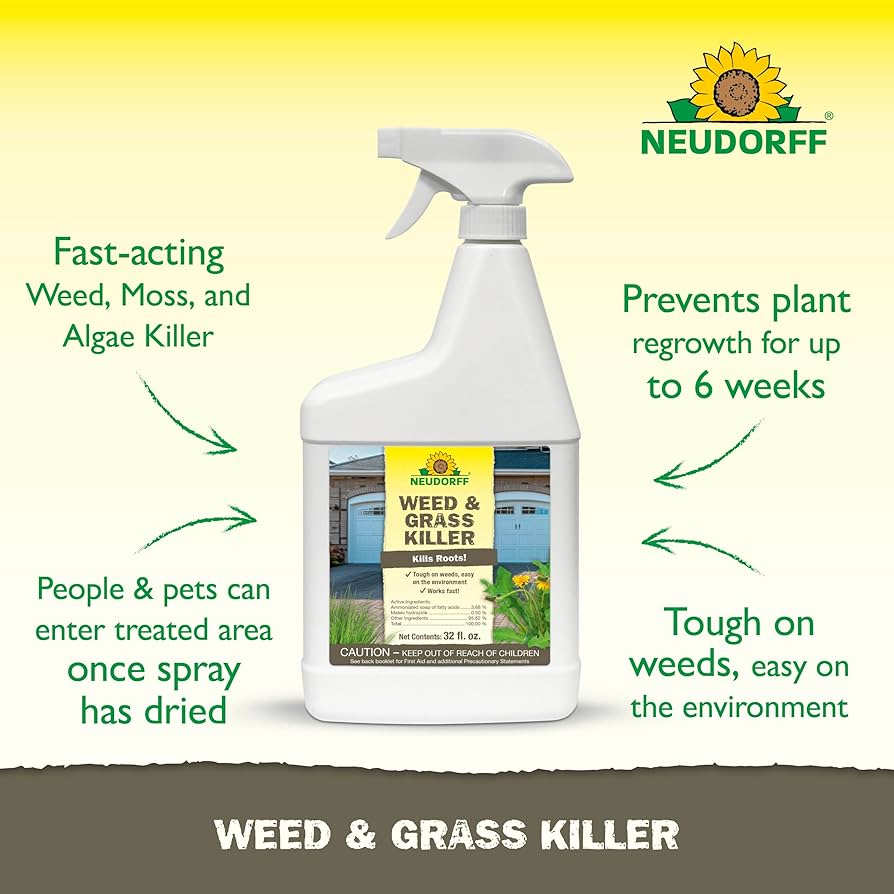
Credit: www.amazon.com
Frequently Asked Questions
What Is The Best Weedkiller To Kill Everything?
Glyphosate-based weedkillers, like Roundup, are highly effective at killing all vegetation. Apply carefully and follow safety guidelines. Always consider environmental impact and check local regulations before use.
What Is The Best Permanent Weed Killer?
The best permanent weed killer is usually glyphosate-based products. These effectively eliminate weeds at the root. Consider using brands like Roundup or Ortho GroundClear. Always follow safety instructions and local regulations when applying weed killers.
What Is The Deadliest Weed Killer?
Paraquat is considered one of the deadliest weed killers. It can cause severe health issues if ingested. Its toxicity makes it hazardous to humans and animals. Proper handling and safety precautions are crucial when using paraquat to avoid potential risks.
Always follow guidelines and use protective equipment.
What Is The Strongest Type Of Weed Killer?
Glyphosate-based weed killers are among the strongest available. They effectively kill a wide range of weeds. Brands like Roundup use glyphosate as their primary ingredient. Always follow safety instructions when using these products.
Conclusion
Choosing the right weed killer is crucial. The wrong choice can affect your garden. Many options exist to tackle stubborn weeds. Some kill all plants, not just weeds. Read labels carefully and follow instructions. Consider natural alternatives for safety. Protect your soil and plants from harm.
Use weed killers sparingly and wisely. Your garden’s health matters. A healthy garden starts with informed decisions. Weed control can be simple with the right product. Keep your plants thriving while eliminating unwanted weeds. Make smart choices for a lush, beautiful garden.

